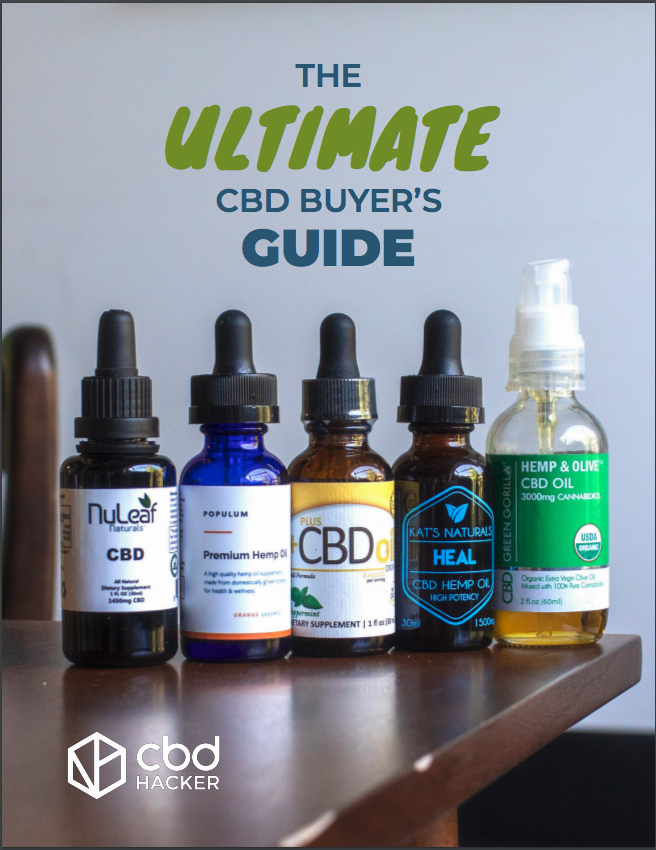Stock prices for Curaleaf, a major CBD brand, fell this week after the FDA sent the company a warning letter for “illegally selling unapproved products containing cannabidiol (CBD) online with unsubstantiated claims that the products treat cancer, Alzheimer’s disease, opioid withdrawal, pain and pet anxiety, among other conditions or diseases.”
In addition, the agency admonished Curaleaf for marketing CBD as a dietary supplement.
Curaleaf must respond to the FDA in writing within 15 days to communicate the specific steps they are taking to correct these violations.
Earlier this year, Curaleaf struck a deal to sell their CBD-infused lotion and transdermal patches in 800 CVS locations. The warning letter prompted CVS to pull Curaleaf’s products from the shelves.
This Week’s Top CBD Deals
NuLeaf Naturals
Discount: 20%
Code: cbdhacker
Plus CBD Oil
Discount: 15%
Code: CBDHACKER
4 Corners Cannabis
Discount: 20%
Code: Hacker20
Populum
Discount: 15%
Code: Hacker15
Mission Farms
Discount: 20%
Code: cbdhacker
Joy Organics
Discount: 15%
Code: cbdhacker
This Thursday, the Senate Committee on Agriculture, Nutrition, & Forestry held a hearing entitled “Hemp Production and the 2018 Farm Bill” to address questions about hemp’s regulatory status.
As Michigan Senator Debbie Stabenow said in her introductory remarks, “With any change, there’s always questions that need to be addressed, and that’s why we’re here today. There are still many outstanding federal and local issues related to CBD oil, risk management tools, and testing methods for harvesting hemp crops.”
Testimony from the FDA’s chief information officer, Dr. Amy Abernethy, directly addressed the concerns of CBD consumers and producers:
“FDA is committed to advancing its regulation of hemp products through an approach that in line with our mission, prioritizes public health, fosters innovation, and promotes consumer confidence.”
She went on to emphasize that providing clarity on regulatory status is an FDA priority, but that prohibition has led to a lack of research on CBD. In particular, she noted that studies haven’t addressed the long-term effects of low-dose exposure in food and beverages.
As the current regulations stand, the FDA considers CBD to be a drug. Therefore, it will not be legal to add it to food unless the FDA decides to make an exception. “It’s common sense,” Abernethy said, “We generally don’t want drugs to be added to food.”
A full video of the hearing is available on the committee’s website.
A recent study looked at potential occupational hazards for people working in the cannabis industry, finding a few issues of which employers should be aware.
The study began when a Minnesota cannabis facility and their union requested a health hazard evaluation from the National Institute for Occupational Safety and Health (NIOSH).
NIOSH representatives visited the facility, where they took air and surface samples for analysis of Δ9-THC, Δ9-THCA, cannabidiol, and cannabinol. Additionally, they looked for volatile organic compounds (VOCs), endotoxins, and fungi.
Ultimately, NIOSH found that workers could be exposed to significant potential health hazards during cannabis processing. They recommended that employers be aware of potential exposures to VOCs, endotoxin, and fungi.
More From CBD Hacker This Week
Stressed out? Check out our team’s high-quality CBD oil picks for anxiety, plus insider advice about how to use them.
Texas may have just solved its marijuana law enforcement problem.
Prosecutors in Texas have been dropping marijuana possession cases in the wake of a new hemp law. That’s because existing testing facilities weren’t able to determine the precise amount of THC in a product. This created reasonable doubt that confiscated samples could be legal hemp and not high-THC marijuana.
But the Texas Forensic Science Commission is taking the DEA’s lead to find a way to use existing equipment to prosecute cases.
The DEA’s process involves a series of initial series of tests that indicate if a substance has above or below a 1% THC concentration.
That’s more than the 0.3% legal limit, but the vast majority of marijuana prosecutions involve THC concentrations of 12% or higher. The commission expects this testing policy to catch most samples above the legal limit.
Washoe County in Nevada is the latest to hold restaurants and businesses to task for adding CBD to food and beverages.
The county health department issued warnings to nine different establishments in the last month due to public complaints.
CBD endorsements are old news in some sports. From mixed martial arts to golf, celebrity athletes have inked deals with CBD brands. And now, tennis player John Isner is the first tennis star to jump on the CBD bandwagon.
Isner is ranked 14 in the world, and he has just announced an endorsement deal with Defy sports drink.
Defy contains 20 milligrams of CBD per bottle, and was co-founded by former NFL star Terrell Davis.
Washington state passed a hemp law in April, and it has cannabis growers worried about accidental cross-pollination.
That’s because the law removed the previous requirement for a 4-mile buffer between outdoor marijuana and hemp farms.
Marijuana growers worry about that cross-pollination could make their product less valuable, while some hemp farmers worry that cross-pollination could cause THC levels to spike above the legal limit.
One region, Okanogan County, has dealt with these concerns by zoning hemp production to tribal lands only.





